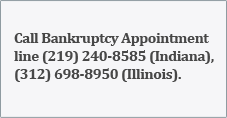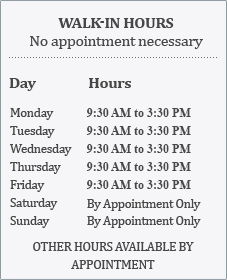- (219) 240-8585
- (312) 698-8950
A chapter 13 bankruptcy is also called a wage earner's plan. It enables individuals with regular income to develop a plan to repay all or part of their debts. Under this chapter, debtors propose a repayment plan to make installments to creditors over three to five years. If the debtor's current monthly income is less than the applicable state median, the plan will be for three years unless the court approves a longer period "for cause." If the debtor's current monthly income is greater than the applicable state median, the plan generally must be for five years. In no case may a plan provide for payments over a period longer than five years. 11 U.S.C. §1322(d). During this time, the law forbids creditors from starting or continuing collection efforts.
Chapter 13 offers individuals a number of advantages over Chapter 7. Perhaps most significantly, Chapter 13 offers individuals an opportunity to save their homes from foreclosure. By filing under this Chapter, individuals can stop foreclosure proceedings and may cure delinquent mortgage payments over time. Nevertheless, you must still make all mortgage payments that come due during the Chapter 13 plan on time. Another advantage of Chapter 13 is that it allows individuals to reschedule secured debts and extend them over the life of the Chapter 13 plan. Doing this may lower the payments. Chapter 13 also has a special provision that protects third parties who are liable with the debtor on "consumer debts." This provision may protect co-signers. Finally, Chapter 13 acts like a consolidation loan under which the individual makes the plan payments to a Chapter 13 trustee who then distributes payments to creditors. Individuals can avoid direct contact with creditors while under Chapter 13 protection.
Any individual, even if self-employed or operating an unincorporated business, is eligible for Chapter 13 relief as long as the individual's unsecured debts are, as of 2013, less than $360,475 and secured debts are less than $1,081,400. 11 U.S.C. § 109(e). These amounts are adjusted periodically to reflect changes in the consumer price index. A corporation or partnership may not be a Chapter 13 debtor.
Schedule a no cost consultation with the Law Office of Jonathan Petersen to evaluate your options. Call our 24/7 bankruptcy scheduling line at (219) 240-8585 (Indiana) or (312) 698-8950 (Illinois). Our scheduling line is open every day of the year including holidays to schedule you for a no cost consultation.




